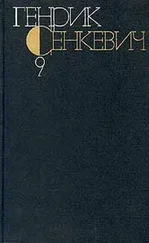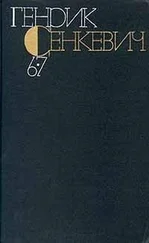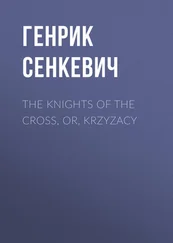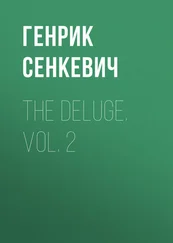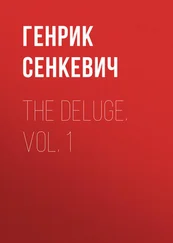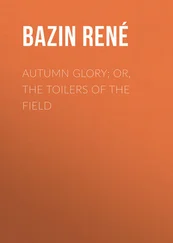Генрик Сенкевич - On the Field of Glory
Здесь есть возможность читать онлайн «Генрик Сенкевич - On the Field of Glory» — ознакомительный отрывок электронной книги совершенно бесплатно, а после прочтения отрывка купить полную версию. В некоторых случаях можно слушать аудио, скачать через торрент в формате fb2 и присутствует краткое содержание. Жанр: foreign_antique, foreign_prose, на английском языке. Описание произведения, (предисловие) а так же отзывы посетителей доступны на портале библиотеки ЛибКат.
- Название:On the Field of Glory
- Автор:
- Жанр:
- Год:неизвестен
- ISBN:нет данных
- Рейтинг книги:3 / 5. Голосов: 1
-
Избранное:Добавить в избранное
- Отзывы:
-
Ваша оценка:
- 60
- 1
- 2
- 3
- 4
- 5
On the Field of Glory: краткое содержание, описание и аннотация
Предлагаем к чтению аннотацию, описание, краткое содержание или предисловие (зависит от того, что написал сам автор книги «On the Field of Glory»). Если вы не нашли необходимую информацию о книге — напишите в комментариях, мы постараемся отыскать её.
On the Field of Glory — читать онлайн ознакомительный отрывок
Ниже представлен текст книги, разбитый по страницам. Система сохранения места последней прочитанной страницы, позволяет с удобством читать онлайн бесплатно книгу «On the Field of Glory», без необходимости каждый раз заново искать на чём Вы остановились. Поставьте закладку, и сможете в любой момент перейти на страницу, на которой закончили чтение.
Интервал:
Закладка:
"The wind is blowing always in the eyes of the poor man. I will walk home."
Meanwhile, Stanislav was wringing his hands from fierce pain and anger, while saying to the Bukoyemskis, with terrible bitterness, -
"Who asked you to do this? My worst enemy could not have hurt me more than have you with your service."
They pitied him immensely, and fell to embracing him, one after the other.
"Stashko," said Mateush. "They sent us a decanter for the night; give thyself comfort for God's sake."
CHAPTER III
The world was still gray when Father Voynovski was clattering along through deep snow with a lantern to the doves, partridges, and rabbits which he kept in his granary in a special enclosure. A tame fox with bells on her neck followed his footsteps; at his side went a Spitz dog and a porcupine. Winter sleep did not deaden the latter in the warm room of the priest's house. The beasts and their master, when they had crossed the yard slowly, stopped under the out-jutting straw eaves of the granary, from which long icicles were hanging. The lantern swayed, the key was heard in the lock, the bolt whined, the door squeaked louder than the key, and the old man went in with his animals. After a while he took his seat on a block, placed his lantern on a second block, and put between his knees a linen bag holding grain and also cabbage leaves. He began then to yawn aloud and to empty the bag on the floor there in front of him.
Before he had finished three rabbits advanced from dark corners jumping toward him; next were seen the eyes of doves, glittering and bead-like in the light of the lantern; then rust-colored partridges, moving their heads on lithe necks as they came on in close company. Being the most resolute, the pigeons fell straightway to hammering the floor with their bills, while the partridges moved with more caution, looking now at the falling grain, now at the priest, and now at the she fox; with her they had been acquainted a long time, since, taken as chicks the past summer and reared from being little, they saw the beast daily.
The priest kept on throwing grain, muttering morning prayer as he did so: " Pater noster, qui es in coelis, sanctificetur nomen -" Here he stopped and turned to the fox, and she, while touching his side, trembled as if a fever were shaking her.
"Ah, the skin on thee trembles as soon as thou seest them. It is the same every day. Learn to keep down thy inborn appetite, for thou hast good food at all seasons and sufferest no hunger. Where did I stop?" Here he closed his eyes as if waiting for an answer, and since he did not have it he began at the first words: " Pater noster, qui es in coelis, sanctificetur nomen Tuum, adveniat regnum Tuum ."
And again he halted.
"Ah, thou art squirming," said he, putting his hand on the back of the she fox. "There is such a vile nature in thee, that not only must thou eat, but commit murder also. Catch her, Filus, by the tail, and bite her if she does any injury- Adveniat regnum Tuum -Oh such a daughter! Thou wouldst say, I know, that men are glad too, to eat partridges; but know this, that a man gives them peace during fast days, while in thee the soul of that vile Luther is sitting, for thou wouldst eat meat on good Friday- Fiat voluntas Tua - Trus! trus! trus! - sicut in coelo -here are both one with the other! - et in terra ." And thus speaking he threw the cabbage and then the grain, scolding the doves somewhat that, though spring was not near yet, they walked around one another frequently, cooing and strutting.
At last, when he had emptied the bag he rose, raised the lantern, and was preparing to go, when Yatsek appeared on the threshold.
"Ah, Yatsus!" cried the priest, "art thou here-what art thou doing so early?"
Yatsek kissed the priest's hand, and answered, -
"I have come to confession, my benefactor, and at early mass I should like to approach the Lord's table."
"To confession? That is well, but what has so urged thee? Tell, but right off, for this is not without reason."
"I will tell truly. I must fight a duel this day, and since in fighting with five men an accident is more likely than with one, I should like to clear my soul of offences."
"With five men? God's wounds! But what didst thou do to them?"
"It is just this: that I did nothing. They sought a quarrel, and they have challenged me."
"Who are they?"
"The Bukoyemskis, who are foresters, and Tsyprianovitch from Yedlinka."
"I know them. Come to the house and tell how it happened."
They went out of the granary, but when half-way to the house the priest stopped on a sudden, looked into Tachevski's eyes quickly, and said, -
"Hear me, Yatsek, there is a woman in this quarrel."
The other smiled; with some melancholy.
"There is, and there is not," said he, "for really, she is the question, but she is innocent."
"Ah, ha! innocent! they are all innocent. But dost thou know what Ecclesiastes says of women?"
"I do not remember, benefactor."
"Neither do I remember all, but what I have forgotten I will read in the house to thee. ' Inveni amariorem morte mulierem, quae laqueus (says he) venatorum est et sagena cor ejus .' (I have found woman more bitter than death. Her heart is a trap and a snare). And farther on he adds something, but at the end he says: ' Qui placet Deo, effugiet illam, qui autem peccator est, capietur ab illa .' (Whoso is pleasing to God will escape her, but whoso is a sinner will be caught by her.) I have warned thee not one time but ten not to loiter in that mansion and now the blow strikes thee."
"Eh, it is easier for you to warn than for me not to visit," answered Yatsek, with a sigh.
"Nothing good will meet thee in that house."
"True," said the young man, quietly.
And they went on in silence, but the priest with a face of anxiety, for with his whole soul he loved Yatsek. When his father had died of the pestilence, the young man was left in the world without any near relative, without property, having only a very few serfs in Vyrambki. The old priest cared for him tenderly. He could not give the youth property, for he with the soul of an angel distributed to the needy all that his poor parish gave him; still, he helped Yatsek in secret, and besides, he watched over him, taught him, not only what was in books, but the whole art of knighthood. For in his day that priest had been a famed warrior, a comrade and friend of the glorious Pan Michael. He had been with Charnyetski, he had gone through the whole Swedish conflict, and only when all had been finished did he put on the robe of a cleric, because of a ghastly misfortune. He loved Yatsek, in whom he valued, not simply the son of a famed knightly family, but a serious, lofty soul, just such as his own was. So he was grieved over the man's immense poverty, and that ill-fated love which had seized him. Because of this love, the young man, instead of seeking bread and fame in the great world of action, was wasting himself and leading a half peasant life in that dark little corner. Hence he felt a determined dislike for the house of Pan Gideon, taking it ill of Pan Gideon himself that he was so cruel to his people. As to Father Voynovski, those "worms of the earth" 2 2 His pets.
were as dear as the apple of his eye to him, but besides them he loved also everything living, as well those pets which he scolded, as birds, fish, and even the frogs which croak and sing in the sun-warmed waters during summer.
There walked, however, in that robe of a priest, not only an angel but, besides, an ex-warrior; hence when he learned that his Yatsek must fight with five enemies he thought only of this: how that young man would prosper, and would he come out of the struggle undefeated?
Читать дальшеИнтервал:
Закладка:
Похожие книги на «On the Field of Glory»
Представляем Вашему вниманию похожие книги на «On the Field of Glory» списком для выбора. Мы отобрали схожую по названию и смыслу литературу в надежде предоставить читателям больше вариантов отыскать новые, интересные, ещё непрочитанные произведения.
Обсуждение, отзывы о книге «On the Field of Glory» и просто собственные мнения читателей. Оставьте ваши комментарии, напишите, что Вы думаете о произведении, его смысле или главных героях. Укажите что конкретно понравилось, а что нет, и почему Вы так считаете.

